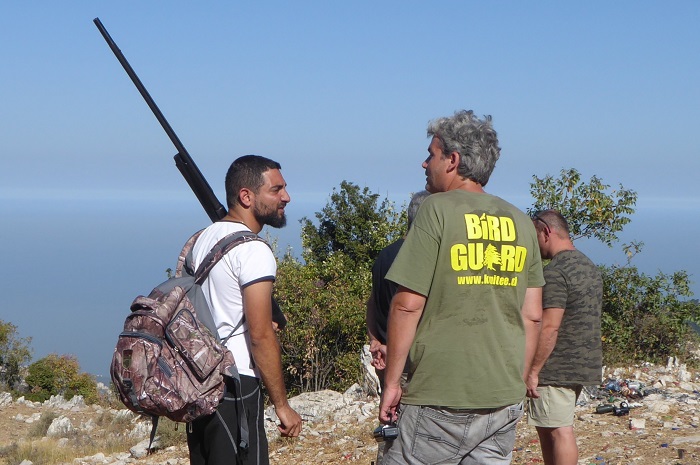The Lebanese Hunting Law (580)

Between 1995 to 2016, the shooting of wild animals was officially banned in Lebanon. The lack of sanctions and controls led to a sharp increase in poaching, especially of migratory birds. The shooting of birds migrating in autumn and spring developed into a widespread sport, to which countless storks, birds of prey and other rare species fall victim every year until today.
Since September 2017, the newly passed Law No. 580, which for the first time comprehensively regulates the shooting of birds and other wild animals, has been in force in the country. Officially, there are now 12 huntable bird species (Chuckar partridge was removed in 2019): Mallard, Eurasian teal and garganey (a mix bag limit of 5), woodcock (5), wood-pigeon and stock dove (mix of 5), fieldfare (10), mistletoe thrush and song thrush (mix of 20), chaffinch (25), calandra lark (50), and common quail (20). All other species, including all birds of prey, storks and other migratory birds, are strictly protected. The official hunting season lasts from September to the end of January. Spring hunting is expressly forbidden. Spatial prohibitions apply to hunting in protected areas and national parks, sites of historical or religious importance, public parks and gardens, and areas completely covered with snow. In addition, hunting must be carried out at a distance of at least 500 metres from inhabited areas.
The use, possession and sale of electronic decoy callers is prohibited. The possession, production and export of limesticks is also prohibited. A further provision is directed against the public display with shot animals. Hunters who publicly display their prey on cars or main roads can expect a penalty, even if there are no protected species among them. Violations can be punished with a fine of up to 500,000 Lira (about 270 Euro) or alternatively with up to one month imprisonment. In addition, the hunting permit can be withdrawn for up to three years in the case of serious offences. In the case of repeat offenders, the double penalty applies.
Conclusion: Even though some gaps still need to be closed - such as grey areas around possession and marketing, the new Lebanese hunting law 580 is an important legal basis for the protection of migratory birds in Lebanon. It will be crucial for the success of shaping education and a sustainable hunting model. However, it is vital that more resources are made available to the police to monitor compliance and improvement enforcement in the future.






